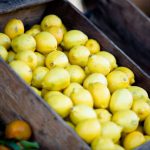Sustainability has become a buzzword in today’s society, with more and more people realizing the importance of living in a way that preserves our planet for future generations. One key aspect of sustainability that often goes overlooked is the role of local food networks. These networks, which connect local producers with consumers in the same region, play a crucial role in fostering sustainability in a variety of ways.
Supporting Local Economies
By purchasing food from local farmers and producers, consumers are directly supporting their local economy. This support helps to create jobs and boost economic activity in the community. Local food networks also tend to prioritize small-scale farmers and producers, who may struggle to compete with larger, industrialized operations. By providing these small-scale producers with a market for their goods, local food networks help to ensure the continued viability of small farms and businesses in the area.
Reducing Food Miles
One of the most significant ways in which local food networks contribute to sustainability is by reducing the distance that food travels from farm to plate. The concept of “food miles” refers to the distance that food is transported from the time of its production until it reaches the consumer. By purchasing locally-produced food, consumers can drastically reduce the number of food miles associated with their meals. This reduction in food miles leads to lower carbon emissions from transportation and helps to combat climate change.
Promoting Biodiversity
Local food networks often support a diverse range of producers, each specializing in different crops or products. This diversity helps to promote biodiversity in the region by encouraging the cultivation of a wide variety of crops and livestock. Monoculture farming, in which a single crop is grown over a large area, can lead to a loss of biodiversity and increase the risk of crop failure due to pests or disease. By supporting local food networks, consumers can help to preserve biodiversity and support sustainable farming practices.
Encouraging Seasonal Eating
Another benefit of local food networks is that they encourage consumers to eat seasonally. Seasonal eating involves consuming foods that are currently in season in a particular region. By eating seasonally, consumers can enjoy produce at its peak freshness and flavor while also supporting local farmers who are growing those crops. Seasonal eating also helps to reduce the energy and resources required to grow out-of-season produce, as well as the need for artificial additives to preserve freshness during transportation.
Fostering Community Connections
In addition to the environmental benefits, local food networks also play a crucial role in fostering connections within the community. Farmers markets, community-supported agriculture (CSA) programs, and other local food initiatives provide opportunities for consumers to interact directly with the people who grow their food. These connections help to build a sense of community and mutual support among producers and consumers, strengthening the fabric of local neighborhoods and promoting a sense of shared responsibility for the health and well-being of the community.
Embracing a Sustainable Future
As we continue to grapple with the challenges of climate change, resource depletion, and environmental degradation, it is clear that we must embrace more sustainable ways of living. Local food networks offer a practical and impactful way for individuals to contribute to sustainability in their own communities. By supporting local farmers and producers, reducing food miles, promoting biodiversity, encouraging seasonal eating, and fostering community connections, local food networks play a vital role in creating a more sustainable food system for the future. By embracing and supporting these networks, we can all play a part in building a more sustainable and resilient future for ourselves and generations to come.





